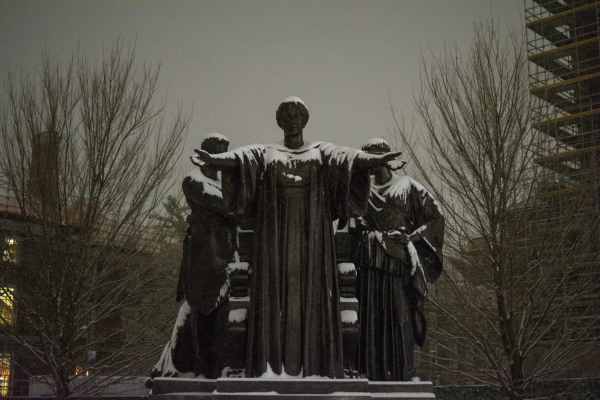On church, charity and commercialism: How religious groups are benefitting at the cost of taxpayers
Oct 13, 2006
Religion is revered all over the world; from America to India to Israel, religious life, while formally separate from public political life, is nevertheless continually contentious and central. In the United States, religious and church organizations are not just revered by private citizens; they are given special recognition by the federal tax code and internal revenue service by being tax exempt.
Tax exemptions for charitable organizations have a rich history in the United States, and going all the way back to the signing of the Constitution, the issue of taxation has loomed in policy discussions in the Unites States. In 1885, Ulysses S. Grant warned that leaving churches tax exempt would lead to a substantial loss of revenue for the nation. And he was right.
It makes sense to allow charitable organizations to be tax exempt – they provide social services, improving local and impoverished communities and should be allowed to use their revenues unhindered for this purpose. In this way the government can show its support for charity without directly subsidizing any particular program, entangling it in state bureaucracy.
Religions and churches, however, are a different story. Under the United States tax code, any organization whose purposes are “charitable, religious, educational, scientific, literary, testing for public safety, fostering national or international amateur sports competition, [or] the preventing cruelty to children or animals” is eligible for tax exemption. The particular rules for non-profits and religions, outlined in section 501(c)(3) of the code, seem to imply that religion and religious organizations are implicitly geared toward social welfare.
In a way, this is true. In some cases churches provide vital services – homeless shelters and day care – to people at much lower costs or simply for free. This kind of behavior should be encouraged, but the tax exemption says nothing about how recipients of such services are approached by religious organizations. Blatant proselytizing and recruitment are within the allowed scope of behavior.
Get The Daily Illini in your inbox!
Moreover, contemporary churches are no longer just single building with a pastor and a soup kitchen; they are multi-million dollar industries. Churches open amusement parks, tanning facilities, restaurants and music venues. They sell books, magazines, souvenirs, and in general function like any other for-profit business. Quite often the proceeds go to expanding businesses and facilities. The fact is that the law does not require any church to provide social services in order to receive tax breaks; they receive them simply by being labeled a religious organization.
Today’s American churches are estimated to own billions of dollars in property. In Chicago, the Catholic Church alone is worth about $790 million, most of which is in real estate on which the church pays no taxes. Churches, of course, have access to police services, to having their streets plowed in the winter, in short, to an entire range of services paid for with taxes. Citizens pay these taxes pay for churches, even ones who perform no social services at all, to exist without contributing to the welfare of the community beyond that of its own constituents.
Other charitable organizations must meet guidelines and submit itemized expenditure forms to the U.S. government, and they must prove they do charitable or socially beneficial work to receive tax breaks. Churches have to do no such thing.
At the very least, the law could mandate that churches must prove they provide social services to the community to receive tax exemption; at most, religious organizations should not be tax exempt. The fact is that simply being a religion or being a church does not necessitate any kind of social benevolence; churches get exemption only by virtue of the fact that they are houses of worship, not because they are havens for the disadvantaged. This is blatant governmental material preference for the institution of religion at the cost of taxpaying citizens.





